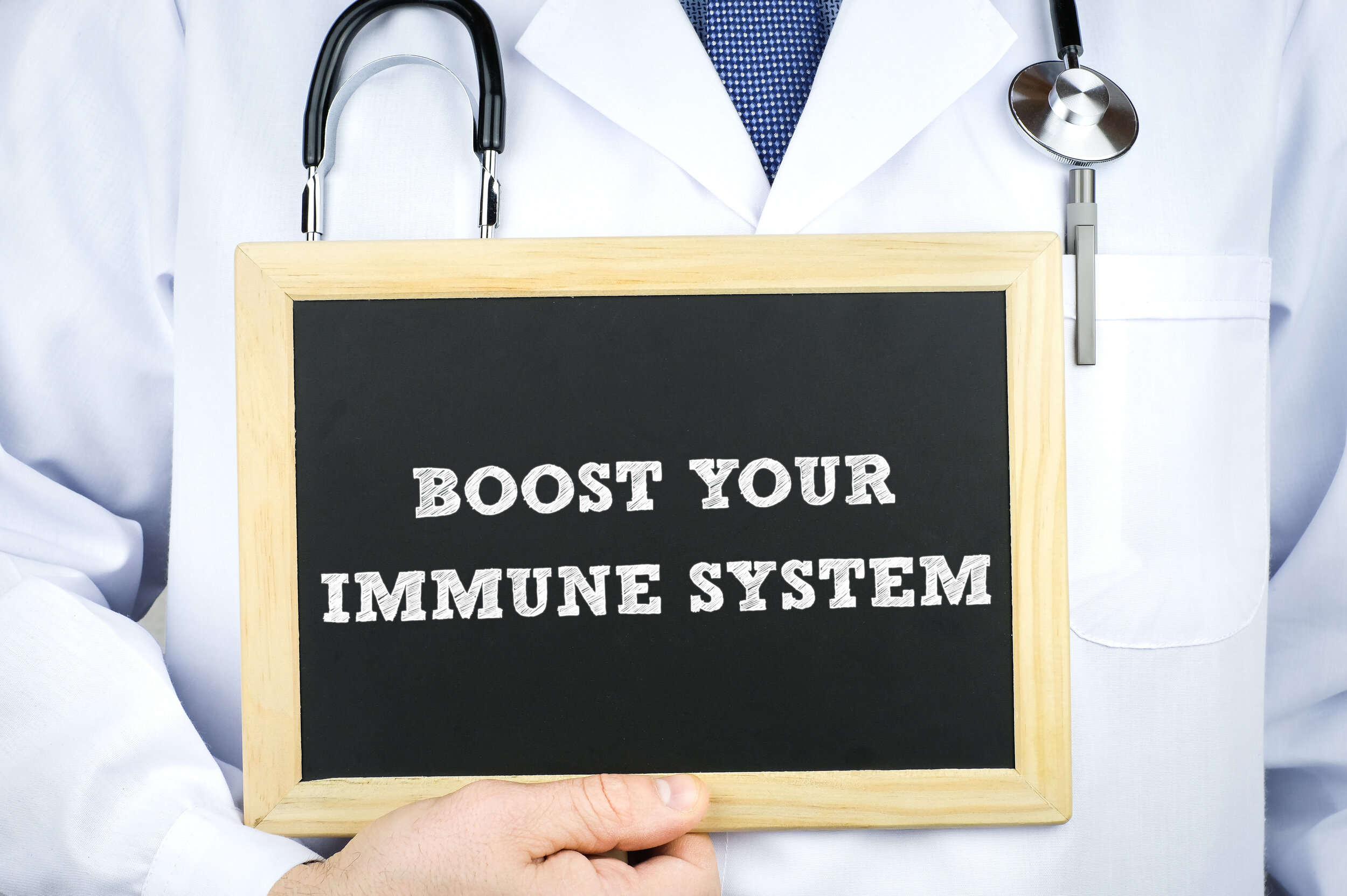The Importance of the Immune System
It has never been so important as it is today to make sure your immune support is fighting fit and ready to fight a battle and keep us strong. Coronavirus (Covid-19) is an infectious disease that causes respiratory tract infections. Many people have reported a continuous dry cough and a fever as the main symptoms, you can also get a sore throat and just generally feel unwell.
People can get mild symptoms or more severe and there are certain individuals or are more at risk. Underlying health or immune conditions like asthma, diabetes, high blood pressure etc. are just some. I am not going to go into the finer details as this has been on the news on a daily basis and we are continuously updated about who is at risk and what symptoms to look out for. I am going to provide you with some immune support, which will hopefully help you stay healthy.
The Immune Systems Role
Our immune system is essential for fighting infections and keeping us healthy. We have a variety of cells that make our internal army, I call it an army as they are there to protect us. White blood cells (also called Leukocytes) are on constant patrol and looking for pathogens. When they find a target, they begin to multiply and send signals out to other cell types to do the same. There are two types of white blood cells, Phagocytes and Lymphocytes, I am not going to go into a biology lesson but as we are being informed about these antibody tests I wanted to explain how part of the immune system works.
An antigen is any substance that can trigger an immune response, like a fever and inflammation. In this case Covid-19. Initially, a range of cell types work together to recognize the antigen as an invader. B lymphocytes spot the antigen, they begin to secrete antibodies. Antibodies are special proteins that lock on to specific antigens. Each B cell makes one specific antibody, at the moment the immune system should be making an antibody to Covid-19 if someone has been infected. Therefore, if someone has had Covid-19 the antibody test will pick this up.
Antibodies are part of a large family of chemicals called immunoglobulins, which play many roles in the immune response. This is why the immune system is so important and also very clever.
That is the science bit over, I am not a doctor by all means so hope that made sense.
Nutrition and the Immune System - Key Nutrients and Herbs
There are many foods that can help the immune system and also foods that can suppress the immune system. Let’s start with the foods and herbs that can help.
Elderberries - are well known as supportive agents against common colds and flu (the common cold is a form of a coronavirus). Hippocrates referred to the Elder tree as his ‘medicine chest’. Elderberry contains tannins and viburnic acid, both known to have a positive effect on nasal congestion and improve respiration (ref: only natural) . There are lots of immune boosting supplements that contain Elderberry.
Echinacea - This is an amazing herb and is used throughout Europe. It works by balancing the immune system so that it works efficiently.
Vitamin C - we all know about the benefits of vitamin C, it is critical for the immune system and also has antiviral properties. You can get vitamin C from foods like oranges, limes, grapefruit, kiwi and peppers. In order to get therapeutic dosages it is a good idea to take it in a supplement form to give your body extra support. Vitamin C does not store in the body so it needs a constant supply, taking a supplement or having some food with vitamin C twice a day (morning and afternoon/evening) is good practice.
Zinc - another key nutrient for the immune system which also has antiviral activity. Zinc can be found in oats, pumpkin, sunflower and sesame seeds, almonds, walnuts and Brazil nuts. These are good healthy snacks as well.
Vitamin D - studies have shown the vitamin D is another important factor in the immune system. Good levels of vitamin D help boost the immune system and help us fight infections. How do you get vitamin D? Your skin hosts a type of cholesterol that functions as a precursor to vitamin D. When this compound is exposed to UV-B radiation from the sun, it becomes vitamin D. As the sun is starting to show it's face again, try and go outside for 20 minutes and enjoy the sunshine (be careful if it is too strong). Other ways to increase vitamin D is by eating oily fish like salmon, mackerel and herring and eggs. If you know your levels are low you can take a vitamin D supplement.
Beneficial bacteria (gut) - One of the most important functions of beneficial bacteria is boosting the immune system. Researchers found that when they exposed immune system cells called B lymphocytes to bacterial spores, the B cells began dividing and reproducing. B cells are one of the key components of the immune system. They produce antibodies that fight harmful viruses and bacteria (ref: www.sciencedaily.com). Much research has been carried out on these bacteria and studies have shown that 70% of our immune system is in the gut. You can keep your gut bacteria healthy by taking a probiotic and eating a healthy diet. In particular, bacteria eat off prebiotics like high fibre foods including garlic and green vegetables.
Beta 1,3,1,6 Glucans - these can be found in oats, barley and certain mushrooms like shitake and maitake. They have been shown to help activated macrophages (immune cells) quickly attack, ingest and destroy foreign cells.
Ginger and garlic - both have anti-viral properties. See the picture below (ref: the Indian spot) to show antiviral products, these can all be added to your cooking. Especially ginger and garlic.
Liquids - We have all been told about keeping hydrated and this is so important. When the membranes that line the respiratory tract get dehydrated, they provide a much more hospitable environment for viruses. Drinking plenty of liquids like warm water and lemon or herbal drinks will help maintain a moist respiratory tract, which will help repel a viral infection. Be mindful of what drinks you are drinking as sugary drinks can reduce the ability of the white blood cells to carry out there job.
Foods to Avoid
I know at this time we are tempted to eat sugary snacks as we are stuck at home but just be careful how much you eat.
Sugar - unfortunately, sugar does affect the immune system in a negative way. It could be down to the effect that glucose (blood sugar) and vitamin C compete for transport sites into the white blood cells. Too much sugar consumption may decrease vitamin C levels and result in a significant reduction in white blood cell function. Too much sugar also has a negative affect on the mood as it creates a roller coaster of blood sugars which effects mood, hormones, immune and many other systems. Have the occasional treat but try have healthy snacks during the day like crudities, oat cakes and snacks made with more natural sugars such as a small amount of honey.
Alcohol - In an issue of Alcohol Research: Current Reviews (ARCR) it summarizes evidence that alcohol disrupts immune pathways in complex and seemingly paradoxical ways. These disruptions can impair the body’s ability to defend against infection. I am not saying to not have a drink on some occasions but try and limit your intake and have days with no alcohol so your body can concentrate on keeping the immune system strong. Alcohol also inhibits the absorption of zinc which is needed by the immune system.
Lifestyle
Sleep - The immune system functions better when the parasympathetic nervous system assumes control over bodily functions, as it happens during rest/sleep and meditation. During the deepest level of sleep, potent immune-enhancing compounds are released and many immune functions are greatly increased. The value of sleep cannot be over-emphasized (ref: The encyclopedia of natural medicine).
If you are finding it hard to relax and switch off at this unusual time, try finding a meditation app that works for you. I find ‘calm’ or ‘headspace’ very good. I also try and get outside once a day to get some fresh air and refocus the mind.
You can get a lot of nutrients from food but if you wanted to boost your immune system right now, I would recommend getting a good quality Vitamin C supplement, Vitamin D if you are deficient and also a probiotic for support the gut health. Supplements with Elderberry and Echinacea are also good items to have in your cupboard.
These are very unusual times and getting food is not always easy, do want you can. Today, I had some parsnips and carrots in the fridge and not much else so I made a soup which was actually really delicious and will last a good couple of days.
I have put a recipe below for a immune boosting drink, don’t worry if you cannot get hold of the all ingredients. You can mix and match ingredients, the key items are ginger and orange juice (vitamin C), Fennel has also been shown to boost the immune system and help with respiratory disorders.
Carrot and Turmeric Smoothie
Serves 2
170ml Carrot or Vegetable Juice
Juice of 1 OrangeJuice of 1 Lime
65g Fennel
1/4 tsp fresh or ground turmeric
5cm of fresh ginger
Put all the ingredients into a blender and blend until smooth, this is best drunk straight away
Stay safe


